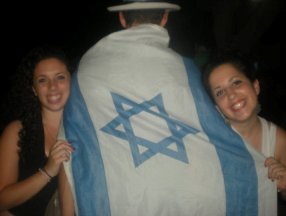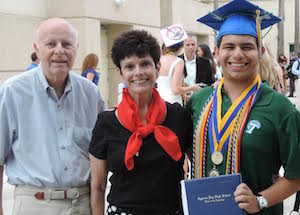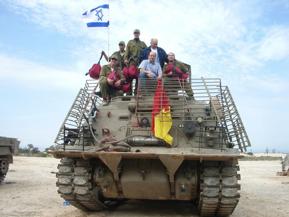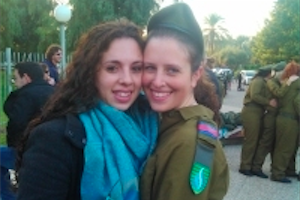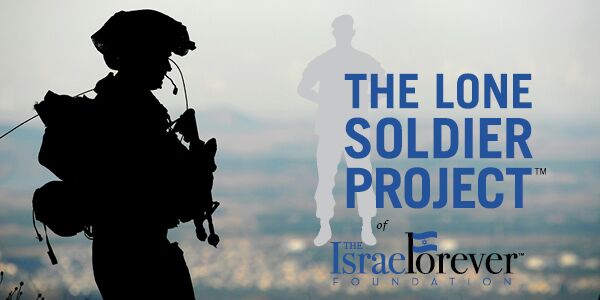No Replacements for Family: A Kibbutz Lone Soldier of the 80s
By Anat Goldberg
My father made aliyah and joined the IDF in the 1980s, following his initial feeling of connection. His experience had a powerful impact on mine and my sister’s lives. So of course I jumped at the chance to interview him as way of promoting an understading of Lone Soldiers and to show what kinds of incredible things can be achieved with just a little Ahavat Yisrael.
Where did your Zionism/love of Israel come from?
I think it starts from an embrace of Judaism and all things Jewish when I was young. My family was not really involved with Israel. They were pro-Israel and gave to charities, but not much more. It was a big thing for them when Israel was founded but I don’t think it was a significant event. But as I learned more about Israel, I think it was a natural extension to want to live there even though most, if not all of my friends were not even interested in making aliyah. Even those who talked about it, in the end did not.
What were your first interactions with Israel?
I first visited Israel in 1979 for a 6-week intensive tour throughout the entire country (including Sinai, then held by Israel). The program included many seminars and speeches by educators and ordinary folks and was completely apolitical. We had some Israelis speak to us. The one I remember most was a Holocaust survivor. We traveled extensively through Judea and Samaria, what is now referred to as the West Bank. There were no discussions on keeping or not keeping the region as this was the home of so many historical and religious sites important to our Jewish heritage and was legitimately won in battle.
What I remember most was the feeling of belonging, of it being home, where the entire country is just like you. It was at this time that I decided I wanted to move to Israel. I absolutely felt at home, despite the very different culture, it just seemed like I was a part of it.
I graduated university in 1982. One week after the first Lebanon war began, I came to Israel to give Israel a try. I was on two kibbutz ulpanim (Hebrew language programs), Ein Tzurim and Be’erot Yitzhak.
What was special about your ulpan experience?
Ulpan at Be’erot Yitzchak was truly inspiring. It included a half day of work and half day of studying. The ulpan also provided day trips around the country. It was a very moving and worthwhile experience.
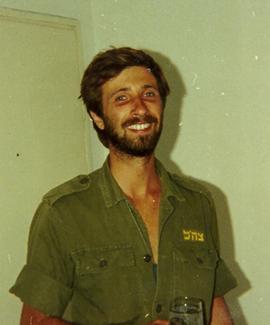
When did you enlist in the Israeli Army?
In Fall 1983, I applied for citizenship and participated in the Marva program. I enlisted in February 1984 and served until May 1985.
Why did you feel an urge to join the IDF?
After reading all the history of the nation, where everything had to be fought for, all the personal stories of people who sacrificed so much to fight for the state, I simply felt it was the right thing to do.
I was especially inspired by the Yoni Netanyahu book, Yoni’s Last Battle by Iddo Netenyahu and felt compelled by the axim, “All Israel is responsible for each other”.
How was it to be a chayal boded (lone soldier)? What rights were you given? Do you remember others like you in this situation? Did their benefits differ from yours?
There are no replacements for family. I was at times envious of the Israeli soldiers returning to the home cooking and loving embrace of Ima and Abba. But I had an adopted family on kibbutz, and they made me feel like one of the family. I was always sent packages of goodies, home-made cakes, etc. I do remember other lone soldiers who weren’t on kibbutz, and felt sorry for them having to return to an apartment and then shop for, and prepare their own Shabbat meals.
As I recall, I was allowed a 3-minute telephone call to the US every three months.
How do you feel about both your daughters living in Israel? And one of them joining the army?
Well, I couldn’t be more proud. They are doing the right thing.
After all these years, how do you stay connected to Israel?
I read a lot of what is going on in the news and I’m in touch with friends. I still feel very much ‘Israeli’, as I speak Hebrew whenever the opportunity arises and on a daily basis follow the news in Israel, both at the national and local levels. Whenever I return to visit, it feels like I never left, except of course for all the new building going on.

